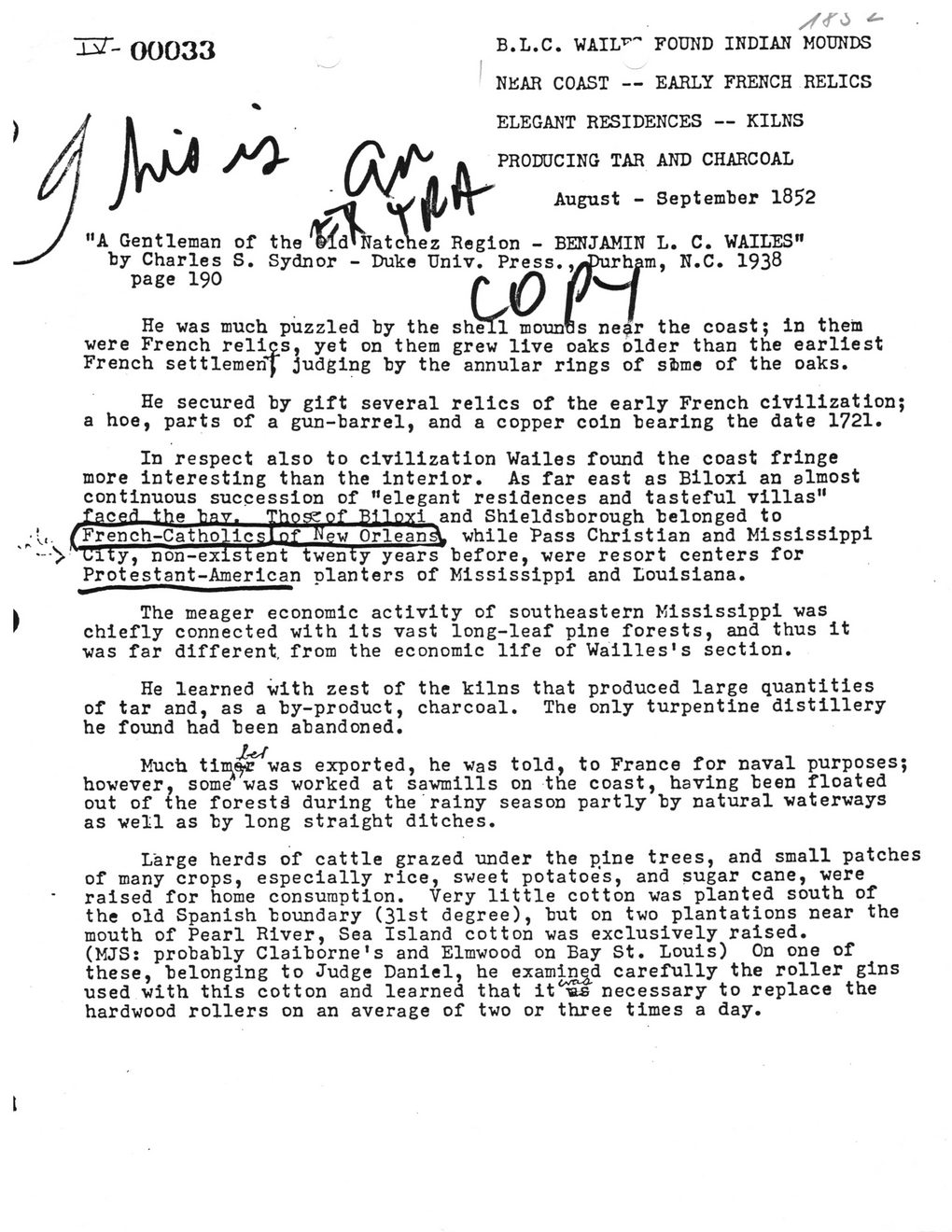This text was obtained via automated optical character recognition.
It has not been edited and may therefore contain several errors.
✓/<ro *- j3T- 00033 B.L.C. WAIL*" FOUND INDIAN MOUNDS &*- tcnez Regi NEAR COAST — EARLY FRENCH RELICS ELEGANT RESIDENCES — KILNS PRODUCING TAR AND CHARCOAL August - September 1852 "A Gentleman of the 1^Nat cWz Region - BENJAMIN L. C. WAILES" by Charles S. Sydnor - Duke Univ. Press.,/purham, N.C. 1938 page 190 ~ v. Press. .WJurhar COM hell mounus near He was much puzzled by the shell mounus near the coast; in them vere French relics, yet on them grew live oaks older than the earliest French settlement judging by the annular rings of sibme of the oaks. He secured by gift several relics of the early French civilization; a hoe, parts of a gun-barrel, and a copper coin bearing the date 1721. In respect also to civilization Wailes found the coast fringe more interesting than the interior. As far east as Biloxi an almost continuous succession of ’’elegant residences and tasteful villas" y Protestant-Amerlcan planters of Mississippi and Louisiana. The meager economic activity of southeastern Mississippi was chiefly connected with its vast long-leaf pine forests, and thus it was far different, from the economic life of Wailles’s section. He learned with zest of the kilns that produced large quantities of tar and, as a by-product, charcoal. The only turpentine distillery he found had been abandoned. X-tA Much tima* was exported, he was told, to France for naval purposes; however, some was worked at sawmills on the coast, having been floated out of the forests during the rainy season partly by natural waterways as well as by long straight ditches. Large herds of cattle grazed under the p.ine trees, and small patches of many crops, especially rice, sweet potatoes, and sugar cane, were raised for home consumption. Very little cotton was planted south of the old Spanish boundary (31st degree), but on two plantations near the mouth of Pearl River, Sea Island cotton was exclusively raised. (MJS: probably Claiborne's and Elmwood on Bay St. Louis) On one of these, belonging to Judge Daniel, he examined carefully the roller gins used with this cotton and learned that it -as necessary to replace the hardwood rollers on an average of two or three times a day.

Coast General Benjamin-L-C-Wailes-1852